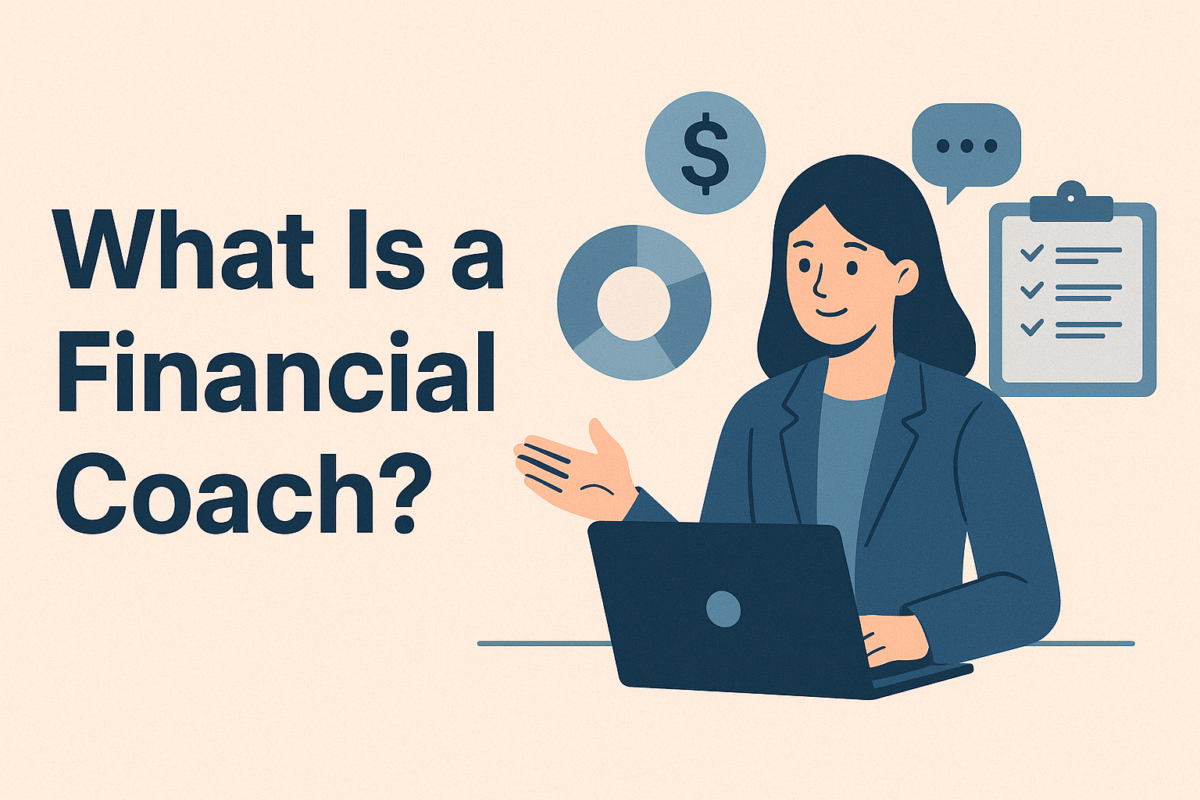In a world drowning in credit card debt, late payments, and financial confusion, a new profession has quietly exploded in popularity: financial coaching.
Financial coaches don’t manage your investments or sell you products. They teach you how to handle your money — how to budget, plan, and make smarter financial decisions. In other words, they help people build the habits that traditional finance professionals often overlook.
If you’ve ever wondered what a financial coach does, who can become one, what training you need, or how they’re paid — this guide breaks it all down.
1. What Does a Financial Coach Do?
A financial coach is like a personal trainer for your money.While a financial advisor focuses on managing assets and making investment recommendations, a financial coach focuses on improving your day-to-day money behavior — spending, saving, budgeting, debt reduction, and mindset.They help clients:
Create and stick to a budget
Get out of debtBuild emergency savings
Develop healthy money habits
Set financial goals and stay accountable
A financial coach doesn’t tell clients where to invest — they teach clients how to get to the point where investing even makes sense.
2. Who Can Become a Financial Coach?Almost anyone with strong money management skills, empathy, and communication ability can become a financial coach.
You don’t need a finance degree or Wall Street background. Many successful coaches come from completely different fields — teaching, HR, small business, or even personal experience with overcoming debt.However, you do need three core traits:
1. Financial competence – You should understand budgeting, cash flow, debt, and goal-setting well enough to teach others.
2. Coaching skills – You’re guiding behavior change, not just giving advice. You’ll need patience, listening skills, and accountability methods.
3. Ethical clarity – You must stay within your lane. Financial coaches don’t manage investments, sell insurance, or give legal tax advice.
If you’ve learned to manage your own finances effectively and enjoy helping others do the same, you already have a foundation to start.
3. Training and Certification Programs
While certification isn’t required to become a financial coach, formal training helps build credibility — especially when you’re starting out.Here are some of the most respected programs:
1. Financial Coach Academy
Founded by Kelsa Dickey, focuses on practical client management and business setup.
Duration: Self-paced, online.
Cost: Around $3,000–$5,000.
2. Dave Ramsey’s Financial Coach Master Training (FCMT)
Focuses on debt elimination, budgeting, and behavioral money coaching.
Great for those aligned with the “baby steps” philosophy.
Duration: 3–6 months, self-paced.
Cost: Around $3,000.
3. AFCPE (Accredited Financial Counselor®)
A more academic and credentialed route, recognized by many organizations and the military.Covers credit, housing, debt, and financial well-being.
Duration: 12–18 months.Cost: $1,200–$1,500.
4. Certified Personal Finance Consultant (CPFC)
Ideal for people wanting to coach within community programs or nonprofits.
Duration: 6 months on average.
Cost: $1,000–$2,000.If you want to build a private coaching business, the Financial Coach Academy or Ramsey training are best. If you want to work with organizations or in public service, the AFCPE certification carries more weight.
4. How Financial Coaches Get Paid
Financial coaches are typically paid directly by clients, not through commissions or product sales. That’s what separates them from financial advisors and sales-driven consultants.Here are the main models:
1. Hourly Coaching Sessions
Common for beginners or part-time coaches.$75–$300 per session depending on experience and location.
2. Coaching Packages
A structured 3- to 6-month program that includes regular meetings, progress tracking, and accountability.Average range: $500–$3,000 per client package.
3. Group Programs or Workshops
Online group coaching, webinars, or community-based money courses.Can reach dozens of people at once.Typical pricing: $50–$500 per participant.
4. Retainers or SubscriptionsSome coaches charge a flat monthly fee (e.g., $100–$400/month) for ongoing access and accountability check-ins.
5. Corporate PartnershipsLarger companies sometimes hire financial coaches to help employees reduce stress and improve financial literacy.These contracts can be highly profitable once you’re established.The key difference is that a financial coach gets paid for guidance and accountability, not product sales.
5. The Lifestyle and Rewards of Financial Coaching
Financial coaching can be both profitable and deeply fulfilling. You help people transform their entire relationship with money — from chaos and fear to control and confidence.
With the right systems, many coaches build six-figure incomes working remotely and setting their own hours. The ceiling depends on your niche, marketing, and business model.It’s a rare profession that combines freedom, purpose, and scalability.
Final Thoughts: The Bridge Between Confusion and Control
Financial advisors handle wealth.
Financial coaches help people build it.They’re the bridge between financial confusion and financial control — a role that’s becoming more important as the world grows more complex and financially stressed.
If you’re passionate about personal finance, have empathy for people, and want to build a flexible, mission-driven business — becoming a financial coach might be your ideal path.
